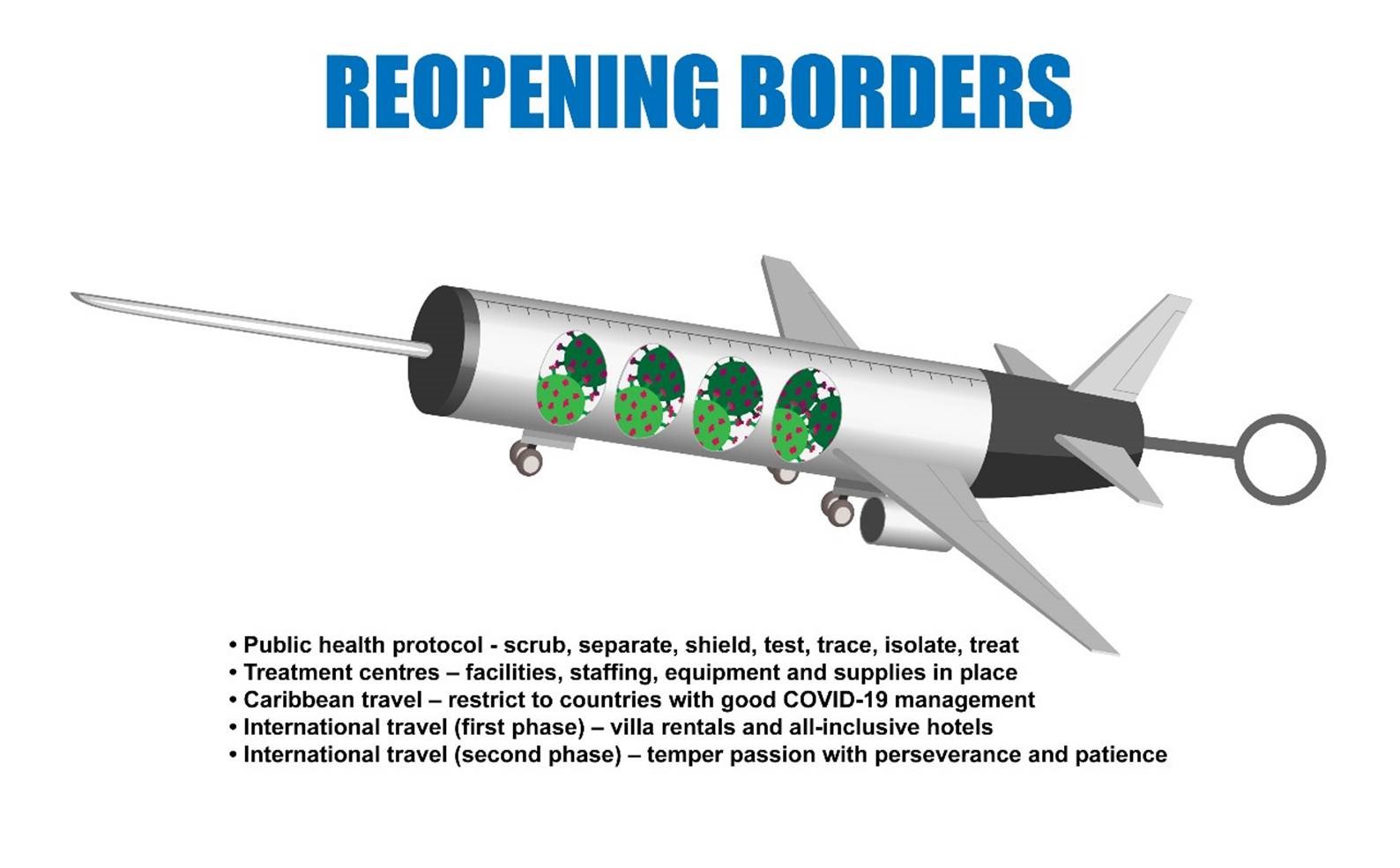“You, my brothers and sisters, were called to be free. But do not use your freedom to indulge the flesh; rather, serve one another humbly in love. For the entire law is fulfilled in keeping this one command: Love your neighbor as yourself.” – Galatians 5:13-14
In the face of an unstable mutating virus and the uncertainty of an effective vaccine, global public health protocols have been sensibly advocating the importance of a healthy immune system, personal hygiene, physical distancing, wearing masks, testing widely, contact tracing, patient isolation and treatment. Caribbean countries have been augmenting the facilities, staffing, equipment and supplies at their treatment centres.
Coupled with this, in the Caribbean, we are rolling out phased “back to work” protocols to stimulate the restarting of our economies. Let us hope that the general population will be law-abiding and give these management approaches a chance to contain community spread of the virus.
The real challenge comes when the national borders are reopened to airline and later, cruise travel, both of which are drastically revising their sanitization and protection protocols to reduce risk and ease travelers’ concerns. The new passenger experience is likely to be totally different from what we have grown accustomed.
It would seem sensible, for a region with a uniformly low incidence of the pandemic infection, to reopen its borders with a focus on LIAT with an entirely new value proposition and incentive to serve the region. Firstly, for intra-Caribbean airline passenger traffic to satisfy the significant pent up demand for regional travel and, secondly, as a connector for international airlines with which they have interline agreements.
To facilitate this, the governments and the private sector would need to create user-friendly enabling environments. Governments must drastically reduce the air travel related taxes by engaging in a policy of “tax the outputs, not the inputs” to give the regional airline industry an opportunity to grow from strength to strength. The regional and international private sector must inject capital and provide services in support of a revitalized regional travel industry.
The public health protocol may have to change to “test, travel, test, trace, isolate and treat”, as we strive to further contain contagion throughout the community.
Travel to the Caribbean should first accommodate regional, business and medical travel; and then tourists from select countries. The country and city selection will depend on the success of pandemic containment. How well we manage these reopening phases will determine the rate of economic recovery and whether we can avoid a second wave.
Villas, timeshares and hotels that have strong sanitization and distancing protocols may be the accommodations that we promote as we await the return of traditional sources of visitor supply. But as the experts have opined, it will not be business as usual for a long time. The passion that we have for opening our borders to international travel therefore must be tempered by patience and perseverance.

(Dr. Basil Springer GCM is a Change-Engine Consultant. His email address is basilgf@marketplaceexcellence.com. His columns may be found at www.nothingbeatsbusiness.com/basil-springer-column/ and on www.facebook.com/basilgf).
